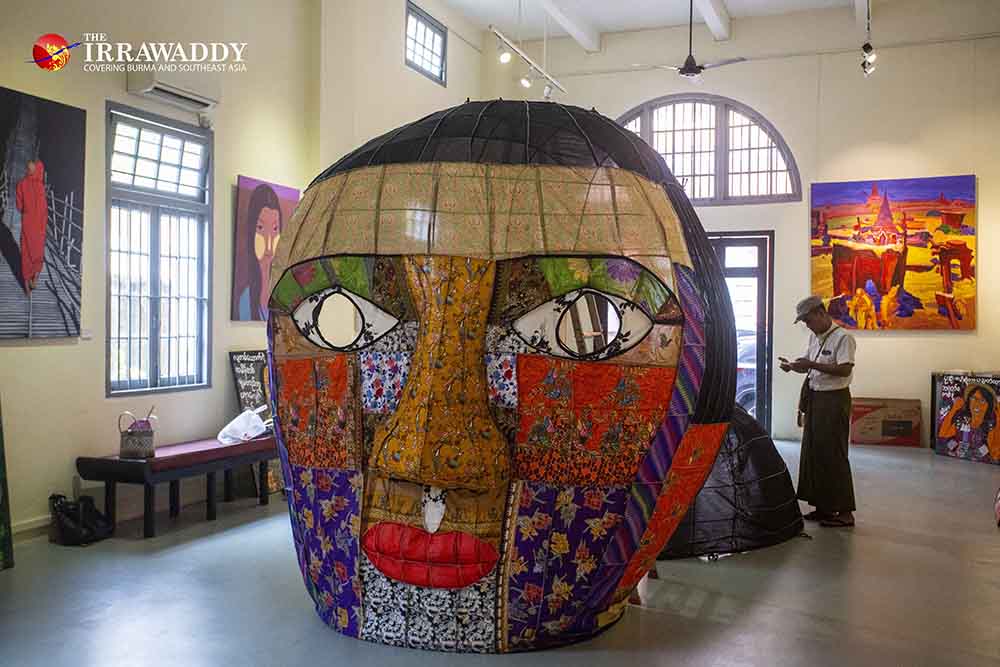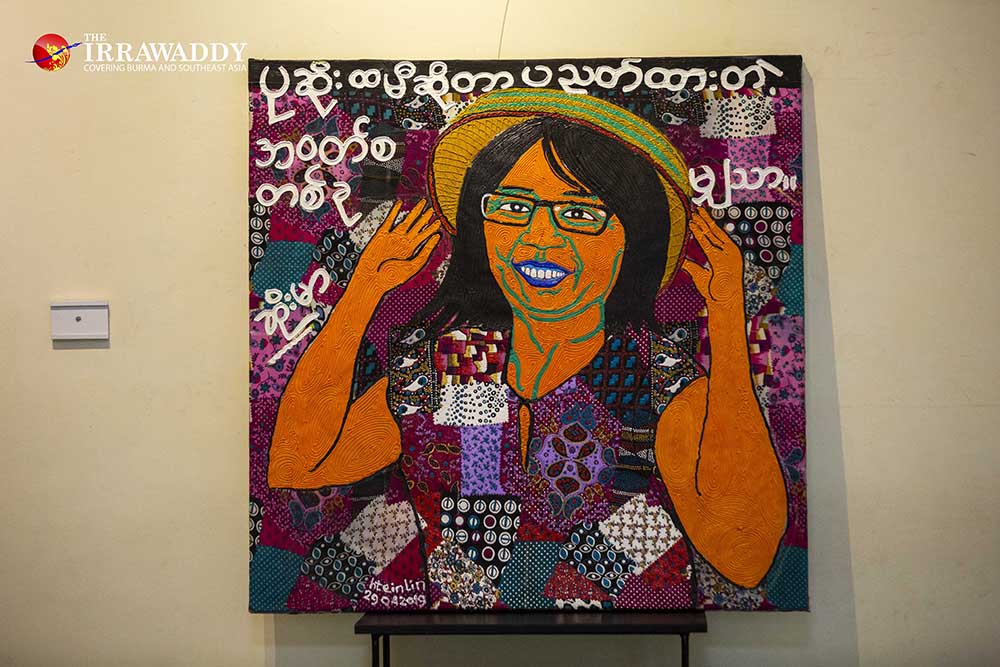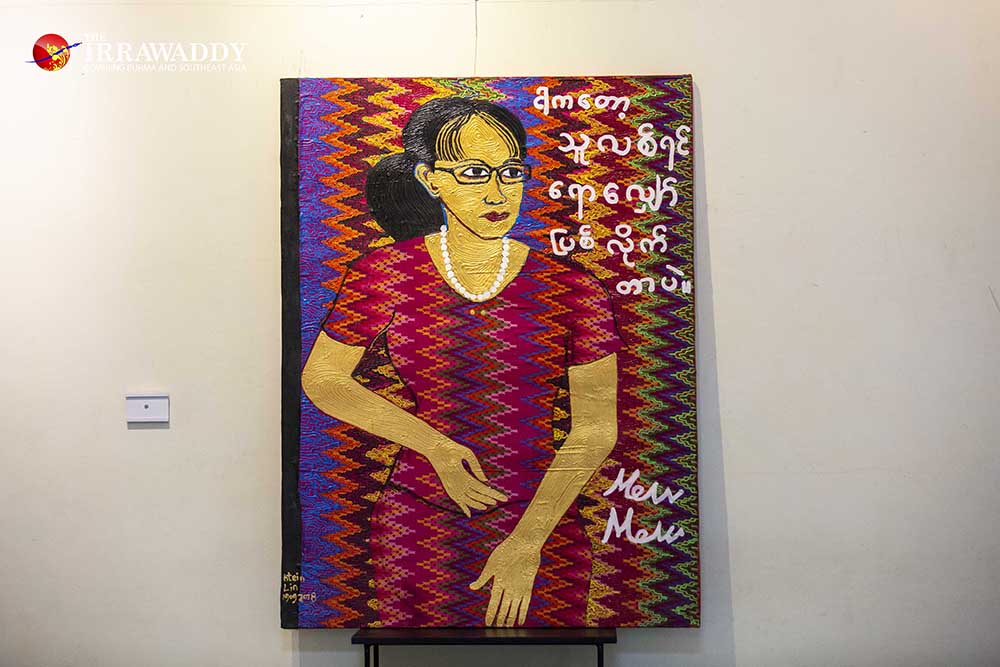YANGON—From Saturday, a series of portraits of women painted on traditional fabric by renowned artist and former political prisoner Htein Lin will hang in River Gallery in downtown Yangon. An outsider to Myanmar culture could hardly guess how improper or even scandalous the sight of a series of htamein, the sarong worn on Burmese women’s lower half, painted and hanging above and around the viewers could appear to some. But Htein Lin’s exhibition is going to cause quite a stir.

“Men lose their hpone if they pass under women’s htameins. Women’s htameins are put at the back of the house. Women’s htameins are washed separately from others’ clothes.”
This is a quote by a woman named Saw Theingi Thet written on her own used htamein in Burmese. The artist then completed the canvas with a portrait of her in acrylic paint. The hpone she is referring to is a man’s strength, power or nobility. It is invisible, intangible, but Myanmar has a long-standing superstition that women, as the “weaker” of the species, can damage it by mixing their htamein with men’s clothing. Htameins are considered unclean—even after washing.
Moreover, the superstition says that men will damage their hpone by walking under a clothes line where htameins hang. It’s customary in Myanmar for women’s clothes to be hung at the back of the house or below men’s clothing.

In Htein Lin’s exhibition, in the middle of the htamein portraits, men and women alike will be invited inside a huge hollow sculpture which itself is made of used htameins sewn together in the shape of a head. They are invited to look through the gap of the eyes and have their photo snapped, perhaps to be shared on their social media later. The message would be: “I don’t follow the belief that women’s clothing can damage a man’s power,” and it would be shared with the world—if they dare.
“The exhibition is about the Burmese culture and Burmese identity. This is also linked with social media because every painting I have done, I posted it on Facebook to let people know. This project is for the community to think about these issues,” said Htein Lin in River Gallery as he made preparations for the exhibition, which will run from May 11 to May 19.
Htein Lin invited women to contribute their used htameins to his art project. He then called them to his studio to paint their portrait and ask them whether they believe the superstition, whether they wash their clothes together with their husbands’ or wash and hang them separately.

“We have many of these kinds of beliefs, but particularly these gender issues. We have to rethink it because our society is changing. Now, men and women all go out working and now they share responsibilities. In my childhood memories, almost all the women in my village were housewives. But now… the women are mostly working, they are professionals,” he said.
The women who took part in Htein Lin’s project come from various backgrounds, both rural and urban areas and includes those living in Myanmar and abroad—and their thoughts on the topic were equally as varied.
“I could never go against the custom that says if a man goes under a woman’s htamein he loses his hpone. That is because I grew up in a family in which most of the family members are men. But starting from my children, I am going to teach them that this custom is wrong,” Daw Win Win Tint, chief executive officer of City Mart Holdings, is quoted as saying on her htamein artwork.
Htein Lin said he is not judging the people who follow the custom or telling them to stop; he said he respects all these women but wants to make society think critically about their beliefs.

“I just want to encourage more independent thinking. It’s a custom, we know that, but we also need to be free from that kind of belief. It’s not a reality to have in your daily life right now,” he said.
Htein Lin recounted the incident of a young woman who was given six months’ jail time for writing a post on Facebook with two photos comparing Senior General Min Aung Hlaing’s new uniform to Daw Aung San Suu Kyi’s htamein. He said that the gender discrimination goes right up to a political level.
“The military were so insulted! The problem was not about Aung San Suu Kyi. The problem was with her htamein. That’s why [the woman] was [given] six months in prison. That was unforgivable,” he said.
The exhibition at River Gallery runs from May 11 to 19 with an opening event on Saturday from 5:30 p.m.


















